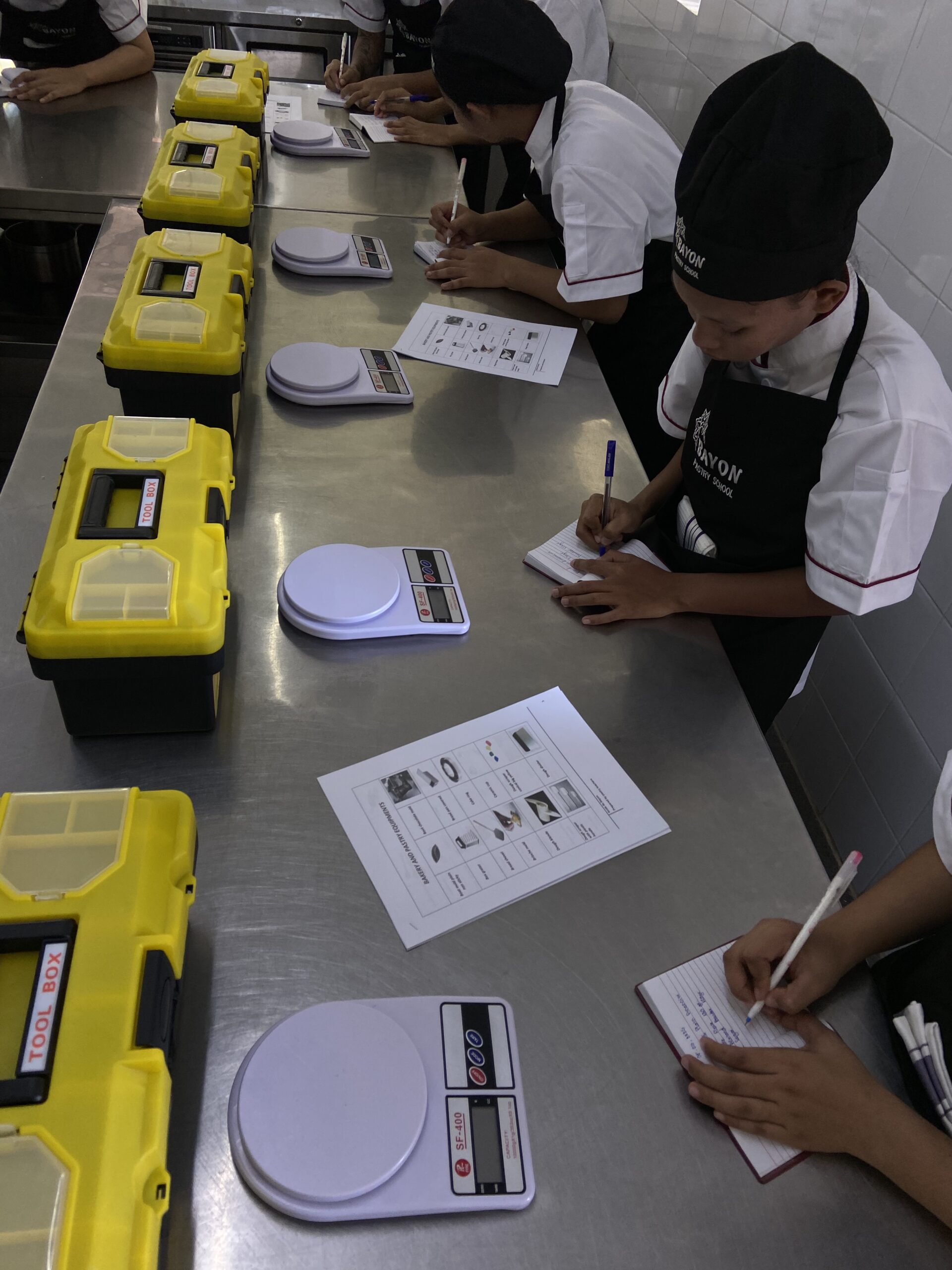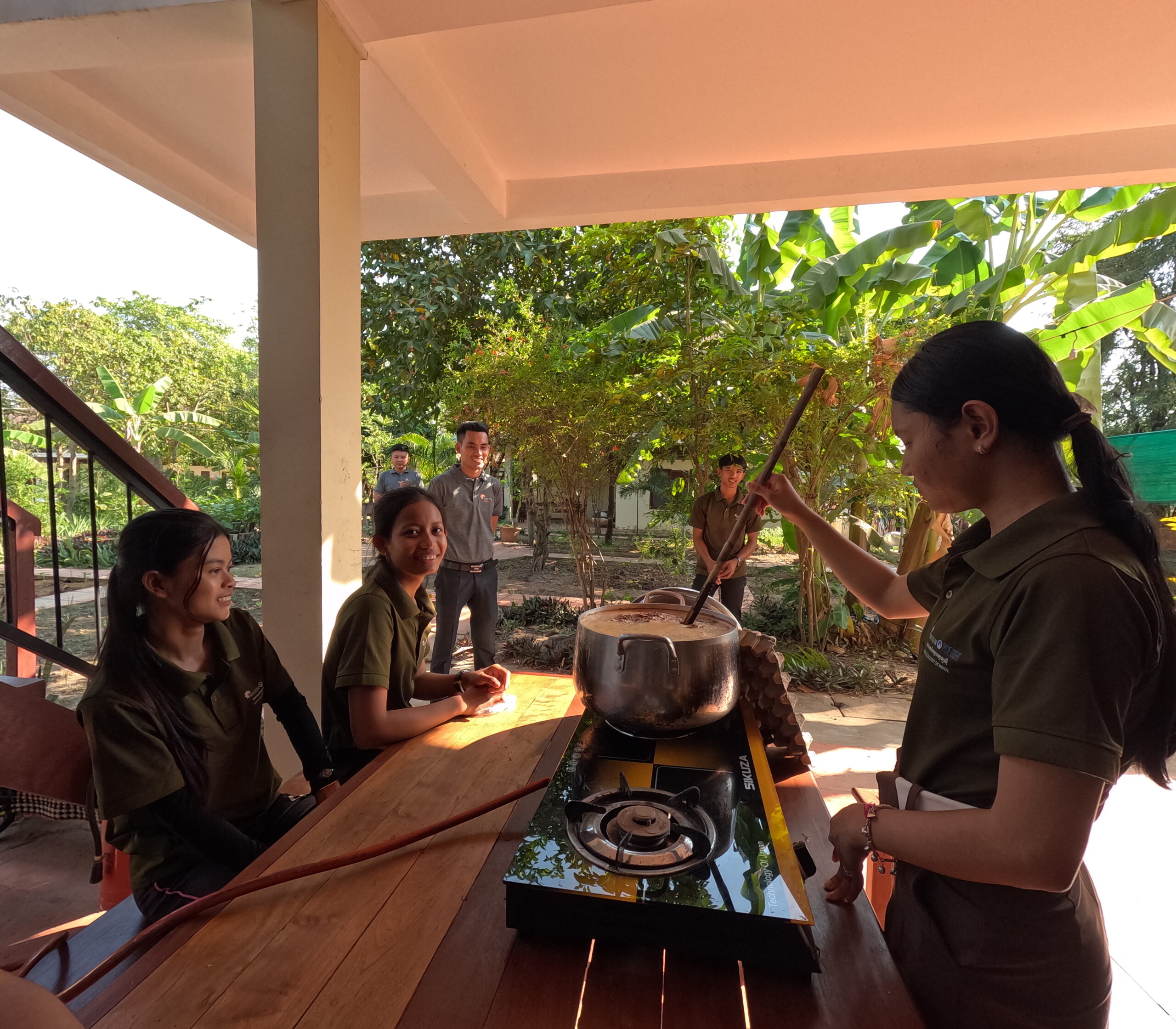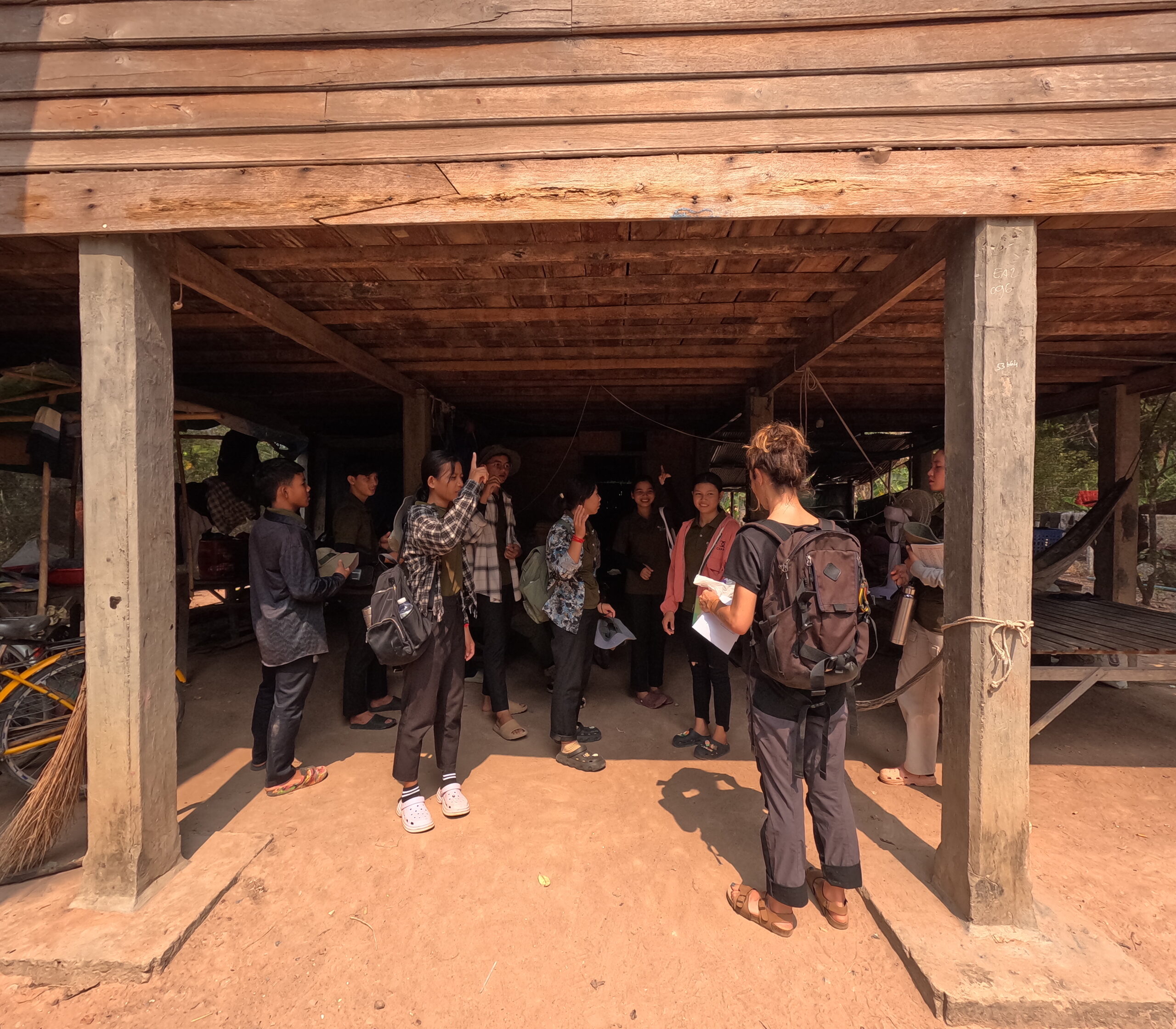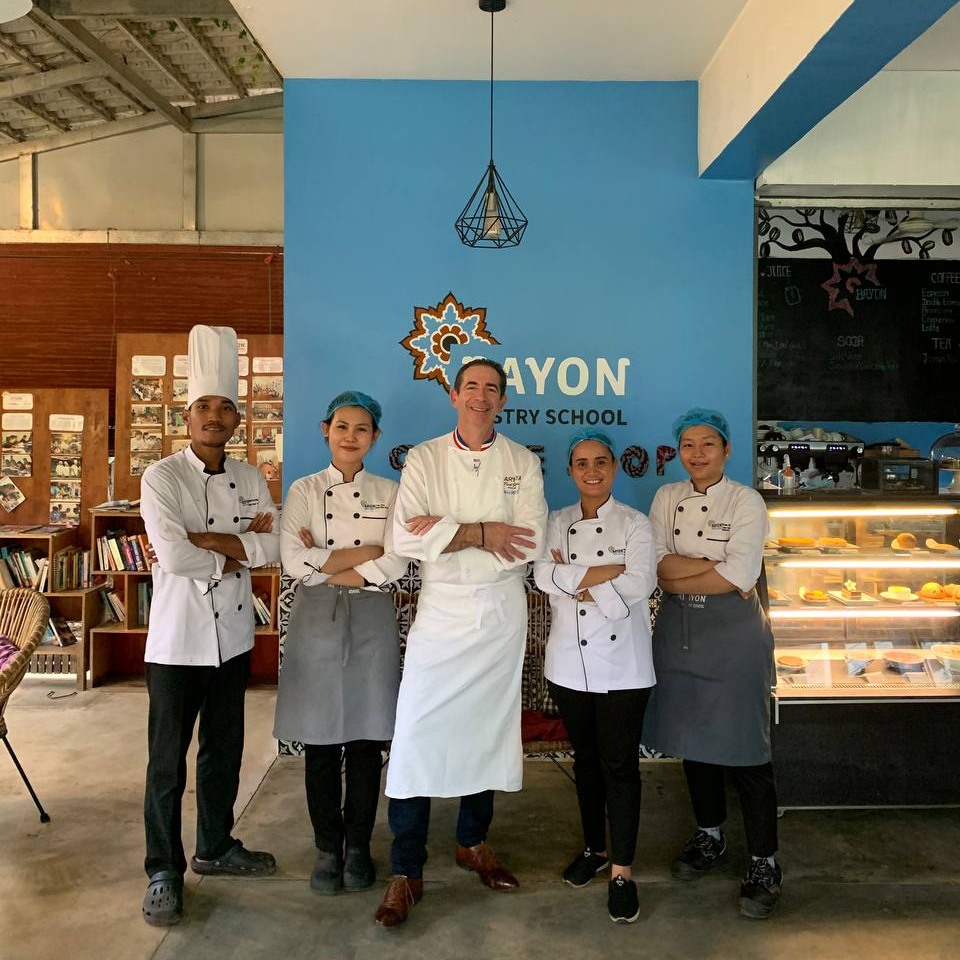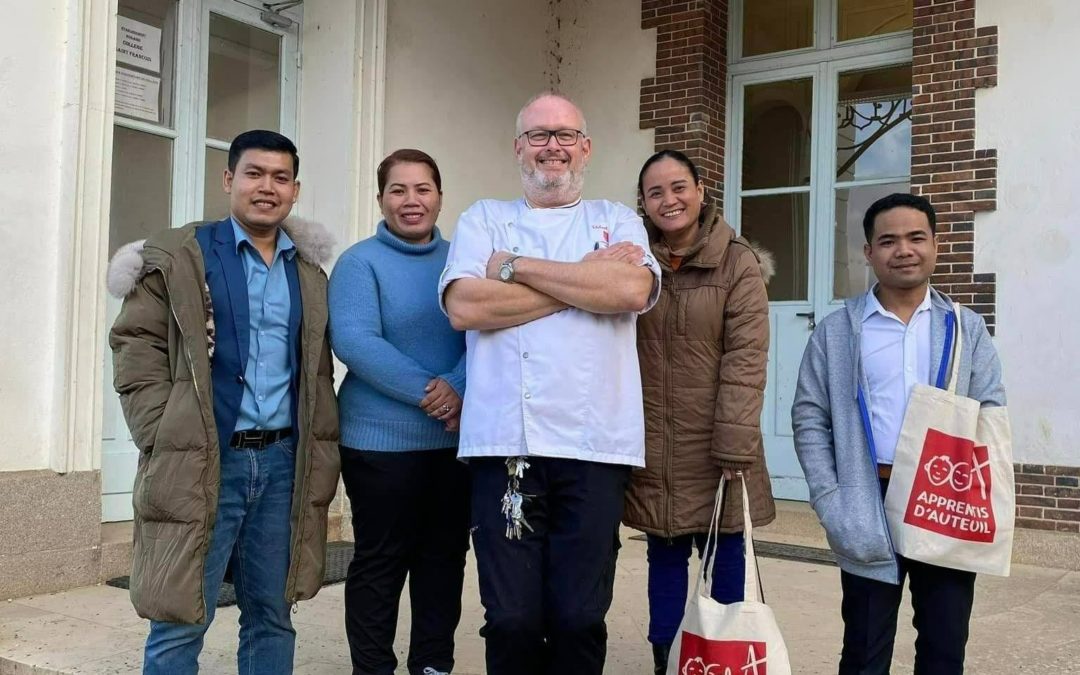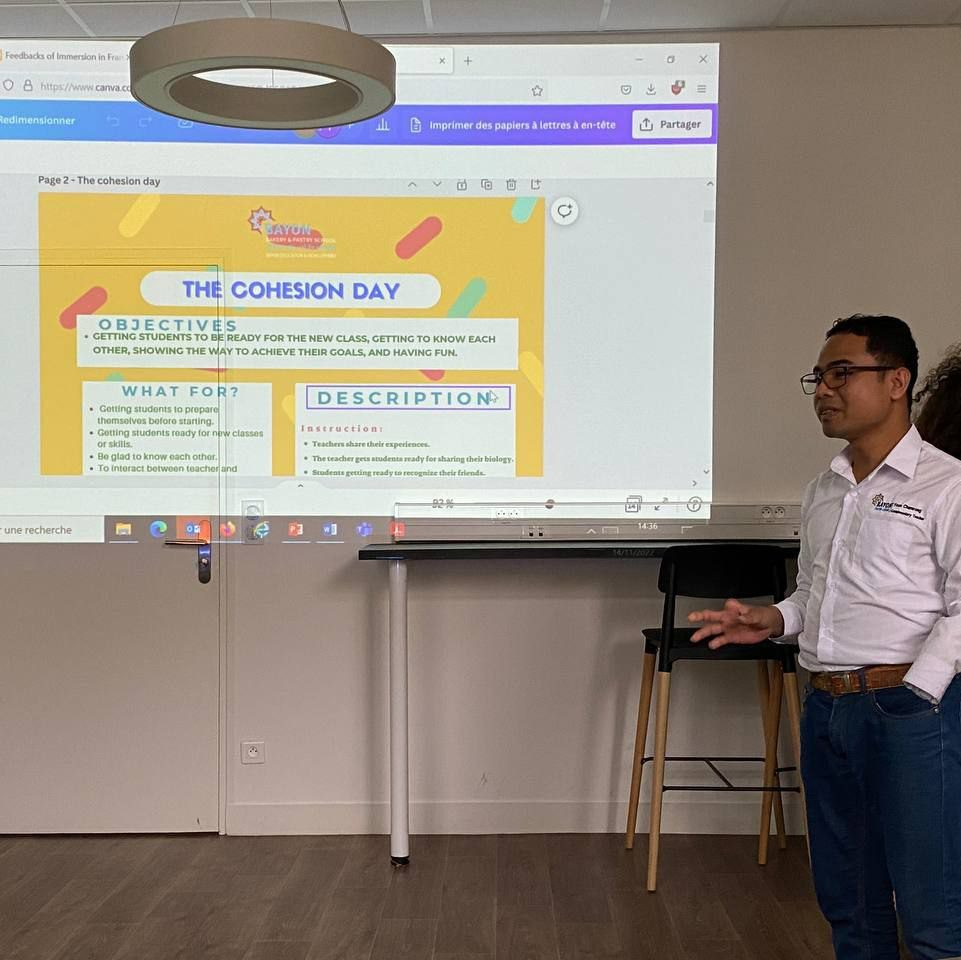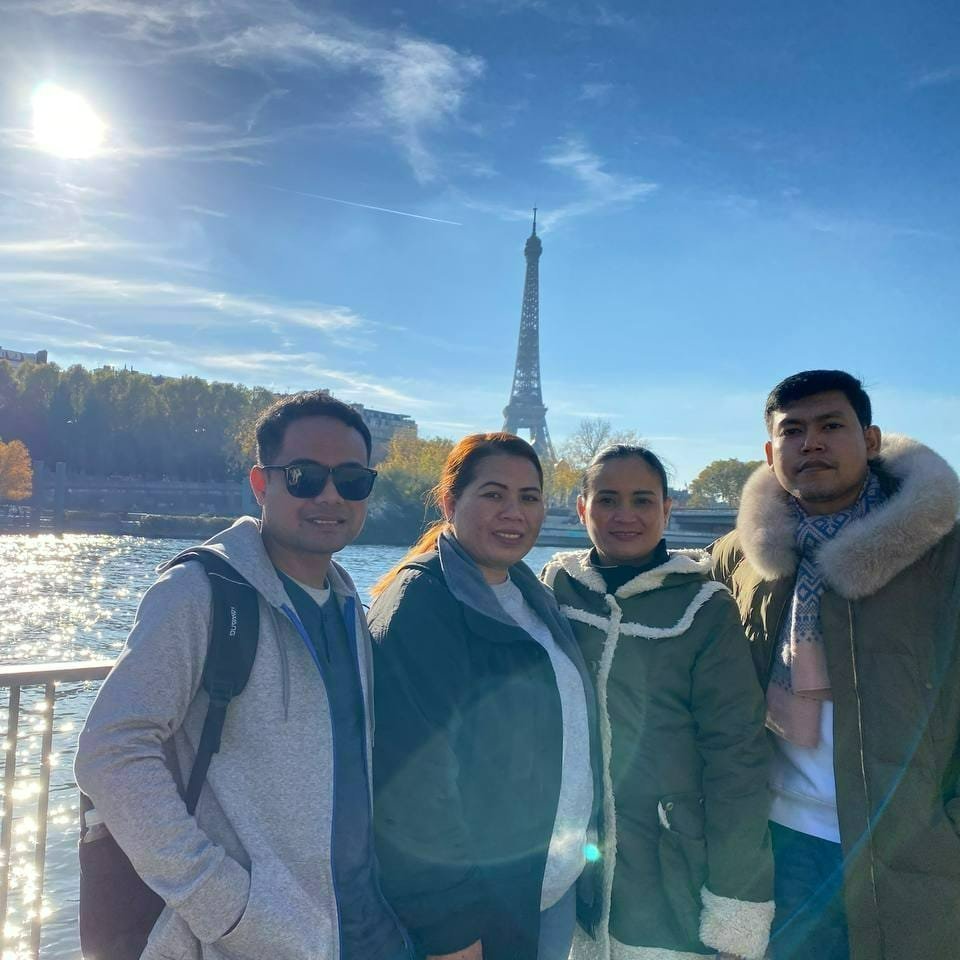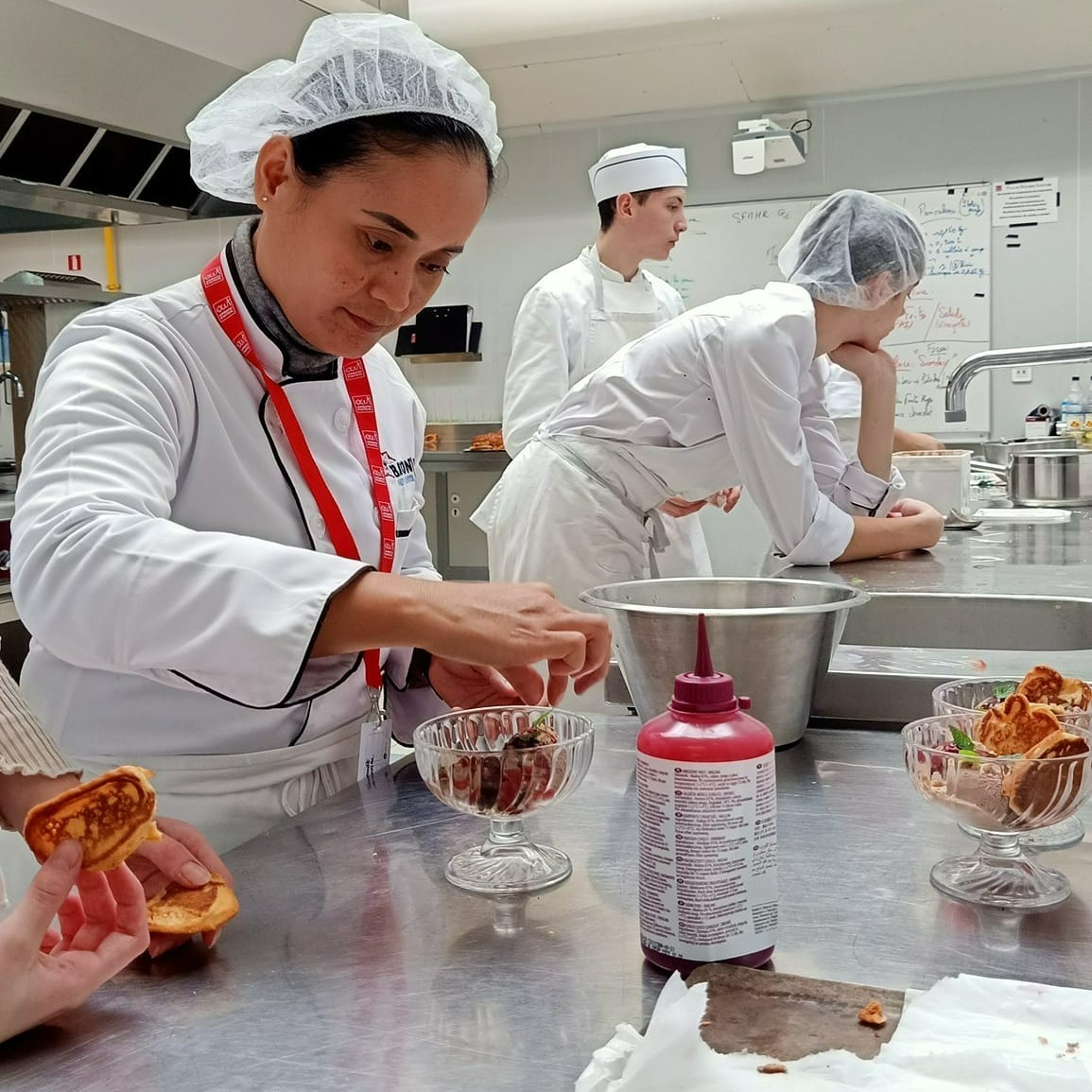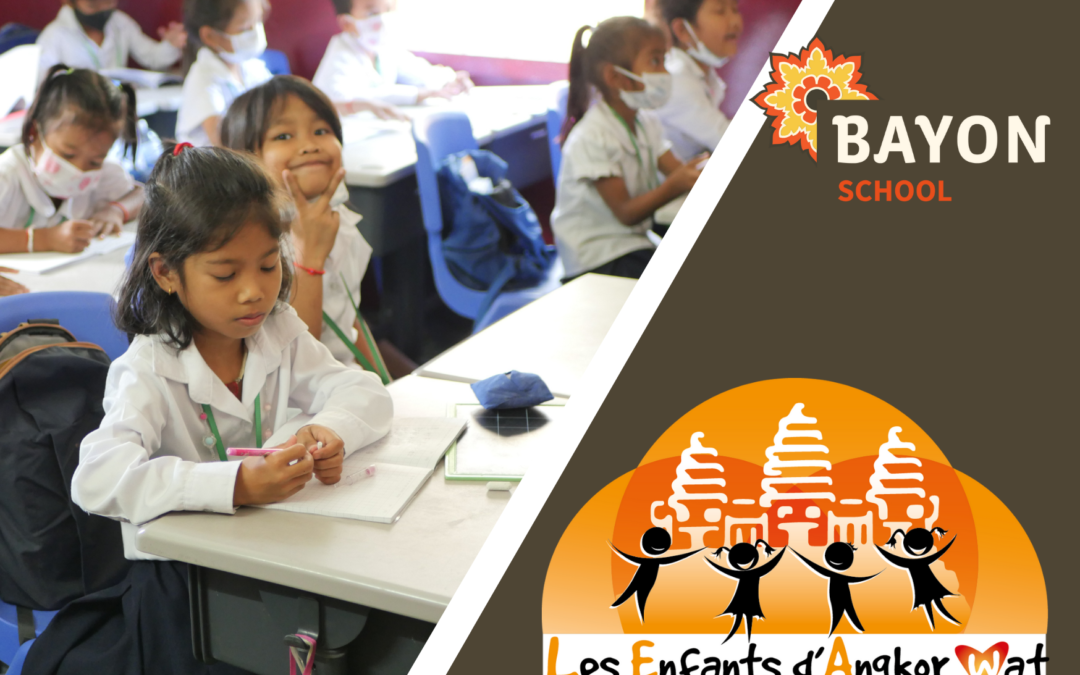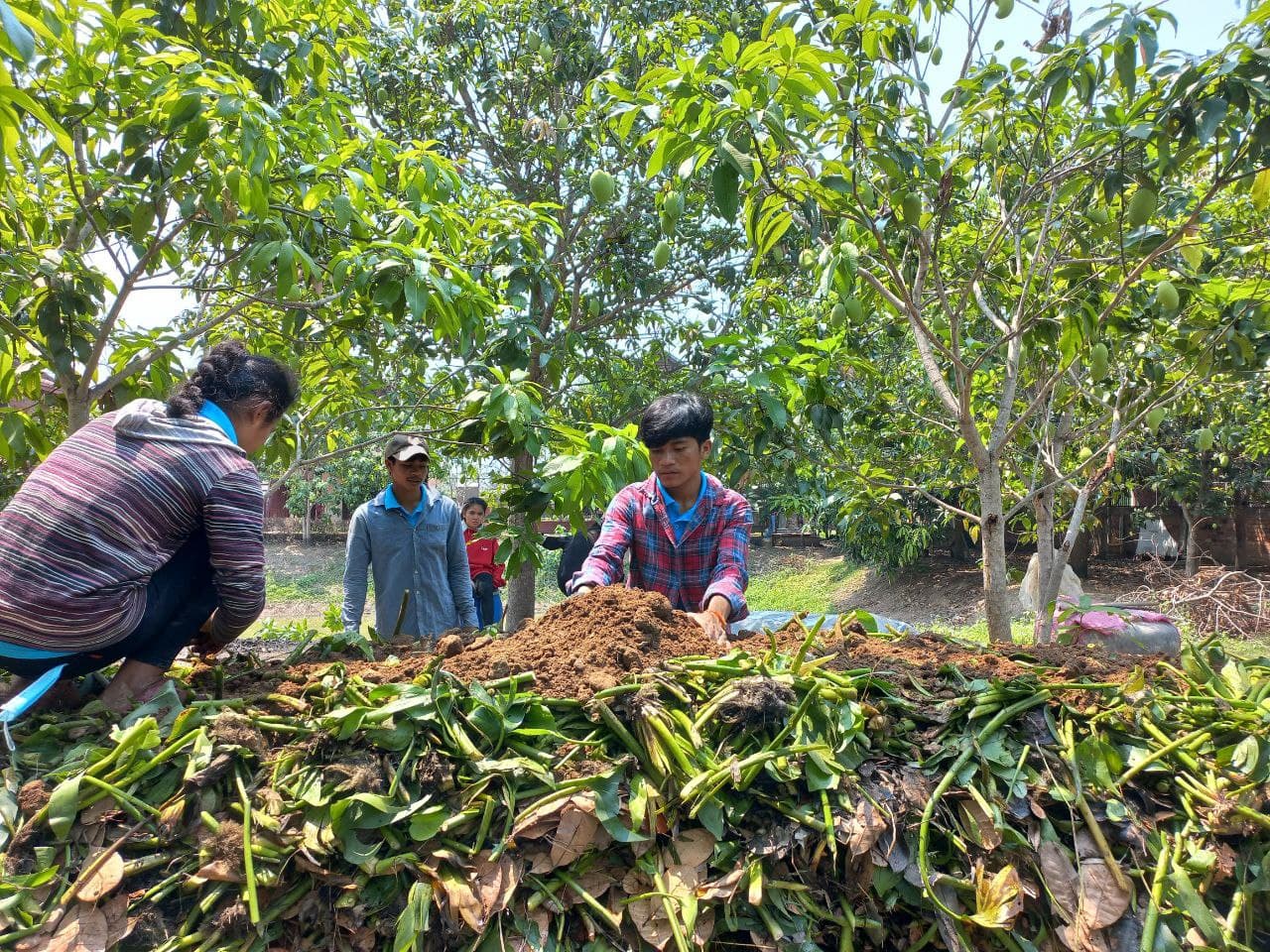8 Months: A year in review for our apprentice pastry chef and agroecology experts

As the school year draws to a close, it’s time to take a look of the past 8 months for our apprentice pastry chefs and agro-ecology experts. This period has been marked by enriching experiences, challenges met with flying colors, and impressive progress in their respective fields.
The apprentice Pastry Chefs
Our pastry students have had a year full of highlights and learning.
Their journey began with in-depth theoretical training in baking and pastry-making for the first four months. This theoretical training was then complemented by four months of intensive hands-on experience in our kitchens, where they learned how to make classic pastries. In this way, they were able to consolidate their knowledge and perfect their skills. In addition, they were trained to serve in our coffee shop, adding a valuable practical dimension to their learning.
At the same time, numerous events enriched their year, boosting their self-confidence and broadening their horizons. Key moments included their participation in the “Francophonie Market”, open days at partner universities, and a workshop they ran for a class at our elementary school.
Beyond the skills specific to their degree, we firmly believe that art and culture play an essential role in their personal development. As a result, our students have benefited from numerous extracurricular activities, such as visits to museums and participation in one of the famous Phare circus shows in Siem Reap.
As their internship period approaches, they have had the opportunity to project themselves into their future careers thanks to hotel visits and the alumni ceremony last June, where they drew inspiration from the careers of their predecessors.
This year concludes with theory exams in their baking and pastry-making subjects, as well as soft skills, computer and english assessments, delivered by the Teacher Development Support Organization (TDSO). More recently, they received their English certification in a beautiful ceremony.
The final exams will take place when they return from their internships in December. We are proud to have witnessed their evolution over the weeks, a success made possible by the dedication and commitment of their teaching staff.

Expert apprentices in agro-ecology and food processing
Our agro-ecology expert apprentices enjoyed a year rich in discovery and practical learning, marked by concrete projects and innovative initiatives.
Their training began with an in-depth immersion in the fundamental principles of agroecology. This initial phase was followed by a series of practical projects that enabled students to apply their knowledge in the field.
Among this year’s outstanding projects, we saw:
Garden: Our apprentices actively participated in the creation and maintenance of the agro school garden, an essential space for experimenting with sustainable agricultural practices and reinforcing their understanding of local ecosystems.
Crickets : They explored locust farming, an innovative method for promoting alternative proteins and sustainable agriculture.
Mushrooms : Mushroom cultivation was a key project, offering an opportunity to learn cultivation techniques in a controlled environment and understand their role in the food chain.
Surface pond creation : Pond fish farming was another important facet of their training, illustrating the importance of integrated aquaculture systems in agroecology.
Tree planting: reinforced their commitment to reforestation and the fight against deforestation.
Like the bakery and patisserie promotion, the students were able to discover an artistic and cultural horizon in the town of Siem Reap.
This year has been a real learning adventure for our students, marked by their commitment and passion for sustainable agriculture. We look forward to following their journey and seeing how they continue to contribute to a greener, more sustainable future.
We wish them every success during their internship, which will end in December, when we will see them again for their final practical exams!
